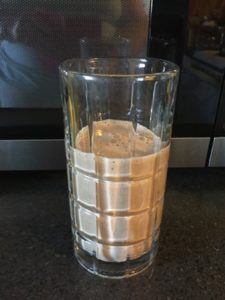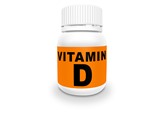Thinking About Taking Supplements? Here’s What You Need To Know
It seems like everyone has an opinion about supplements. Some bodybuilders swear they owe their ripped physique to a regiment that combines supplements with their daily workouts, while others state that a healthy diet is all they need to stay buff and in top physical shape.
If you are thinking about taking supplements there are a few things you should know, starting off with “is it safe for you”? The only person that can answer this will be your primary health care provider. Only after it has been deemed safe will you want to start thinking about spending your money on dietary supplements.
Types of Supplements
There are two main types of supplements,
- Basic supplements which include protein powders, multivitamins and BCAAs (branched-chain amino acids). These types of supplements generally only have a few, if any, added ingredients.
- Supplemental “cocktails” are a mix of several natural or synthetic ingredients, and are only recommended for advanced bodybuilders. They are usually characterized by the use of numbers in their name or the letter “z”.
Protein Powders
If you want to build strong, healthy muscles your body will need protein. Most experienced trainers and licensed nutritionists recommend 1 gram of protein for every 2 pounds of lean body mass, but this can vary depending on your fitness goals.
Protein can be found in a variety of foods that include lean meats, eggs and nuts, and it is possible to get enough simply by following a healthy and well-balanced meal plan. However, if your goal is to “bulk up” you might find that trying to get enough protein simply by eating healthy isn’t producing the results that you want.
If you aren’t getting enough protein you might want to consider adding it as a supplement to your daily diet. It typically comes as a powder, all you have to do is add the suggested amount to a healthy shake. While there are several types of protein powders to choose from, three are recommended more often than the others.
- Whey protein is easy to find, inexpensive and one of the most popular with consumers. If you are lactose intolerant you will probably want to avoid whey since it is what is left behind after curdled milk has been strained.
- Egg protein is often recommended in place of whey, and while it is a little higher in price it is still less expensive than many other dietary supplements. An added bonus of egg protein is that you still get the benefits without the unhealthy fat and cholesterol.
- Soy protein is also popular, but not always recommended. Even though soy protein is plant based, it does not affect everyone the same. In some cases it can cause serious health problems, which makes it important to check with your primary health care provider before taking soy protein.
It is always important to read the label on any protein powder, even one that was recommended by your trainer. Some brands do contain tiny amounts of metal, and this is something you should be concerned about. If you are in doubt, always ask a licensed physician if a protein powder is safe for you to take.
Other Popular Supplements
No matter what results you are trying to achieve, even if it’s just your overall health, you can probably find a supplement to help you reach your fitness goals. Some of the ones you might want to consider, after checking with your health care provider, can include the following.
Fish Oil
Studies have shown that the two types of omega-3 fatty acids found in fish oil can improve cardiovascular health and reduce your risk for certain types of cancers. It can also help reduce inflammation, and this can make it easier for you to recover after a grueling workout, although it should never be used in an attempt to skip a scheduled “rest” day.
Vitamin D
Essential for the growth and development of strong muscles and healthy bones, it’s not hard to see why bodybuilders and fitness buffs often add a Vitamin D supplement to their daily routine. It can help prevent fractures that can sideline your workouts, along with osteoporosis in adults over 50.
Branched-chain Amino Acids
Also known as BCAA’s, if you are already taking a protein supplement you will want to speak to a licensed physician before adding this to your daily routine. Made up of three amino acids, leucine, valine and isoleucine, they are necessary for protein synthesis which is essential if you want to build strength and muscle mass. These amino acids are also found in most protein supplements, and taking too much can be detrimental to your health.
Caffeine
This supplement is controversial for a very good reason. Caffeine is a stimulate, and while this can give you the boost you need to power through a particularly tough workout, it can also cause health problems if not taken correctly. When it comes to taking caffeine in supplement form, it is always best to do so under the guidance of a licensed physician. It should also be noted that caffeine is habit forming, and this can result in additional problems.
Creatine
If you want to improve your athletic performance and increase strength for power and weightlifting, Creatine might be the best supplement for you. Well researched for safety and the results it can provide, it also occurs naturally in your body. Creatine aids in cellular function, and this makes your muscles perform more efficiently. Since it causes your muscles to temporarily store water, it can also make you look just a little bit bigger. The downside is that you might also feel bloated, though once again these results are not permanent.
Calcium
Most health experts recommend getting your daily calcium from food, but sometimes this isn’t enough. This can be especially true for adults over 50. If you need to supplement your calcium intake, a multivitamin should be enough, though you will want to check with your primary health care advisor before making any changes.
Fiber
Even if you are training for an upcoming competition, chances are you won’t need to take a fiber supplement. Fiber is found naturally in a variety of foods, and if you are following a well-balanced meal plan you are probably already getting enough. Most nutritionists recommend getting on average 25 to 30 grams of fiber a day. That equals 14 grams for every 1,000 calories you consume.
ZMA
This refers to zinc, magnesium and Vitamin B, and all are essential for good overall health. They have also shown to be beneficial in boosting endurance and workout performance. Magnesium and zinc can also aid in promoting healthy sleeping patterns. If you aren’t well rested your workouts will suffer, and it might take longer for you to reach your fitness goals.
Beta-Alanine
Generally considered a “pre-workout” supplement, beta-alanine can give you the extra boost of energy you need to complete just one more set. Unlike caffeine, this beta-amino acid does occur naturally in the body. It can also be found in foods that are high in protein. While beta-alanine is considered safer than caffeine, it is still a stimulate and shouldn’t be taken without approval from a licensed health care provider.
Supplements to Avoid
Even though supplements can be beneficial when taken properly, there are some that you will want to avoid. Most experienced trainers and licensed physicians recommend staying away from,
- Performance and weight loss enhancers. According to the Food and Drug Administration (FDA) these supplements are not “herbal” supplements, and could present significant health risks for some people.
- Water and detox pills do work for a short period of time, at least until you eat or drink again. Not only are these supplements considered to be “scams”, they can also pose health risks overtime.
- Laxatives do not help you absorb fewer calories, only empty your bowel and remove necessary water temporarily from your body. This can also result in health problems over time.
The main aspect these three supplements have in common is that they empty your body of much of the water it needs to function properly. This can cause electrolyte levels to drop, along with your metabolism. All of this will affect your workout performance, along with your health.
Do You Really Need to Take Supplements?
When they are taken correctly and combined with hard work and a healthy diet, supplements can help you reach your fitness goals. They can make sure that your body is getting the nutrients it needs to power through your grueling workouts, and build lean toned muscles. It is important to remember that supplements won’t produce miracles. If you’re not willing to follow your workout plan and eat a nutritious diet there won’t be any noticeable results, no matter what or how many supplements you take.







